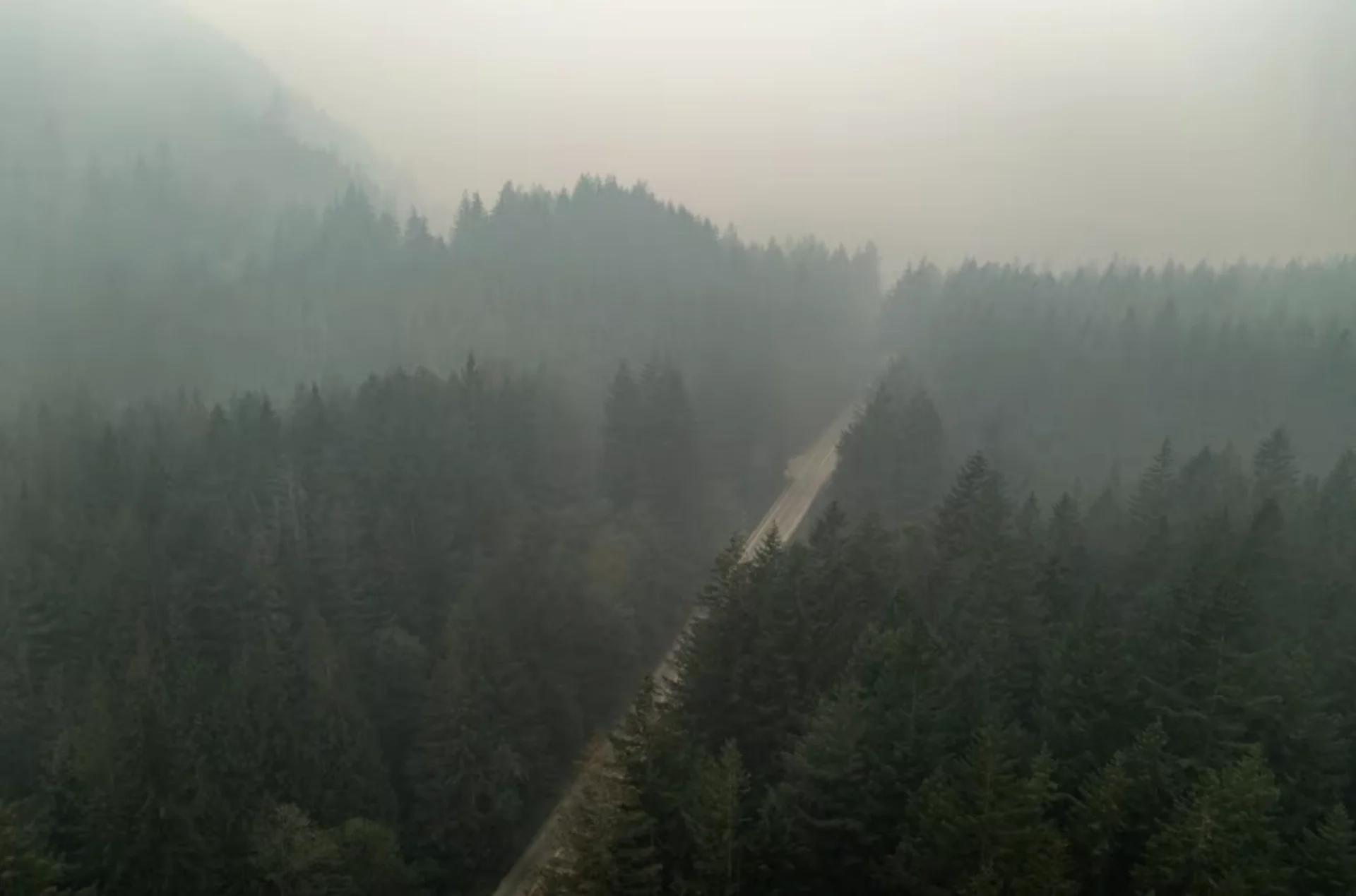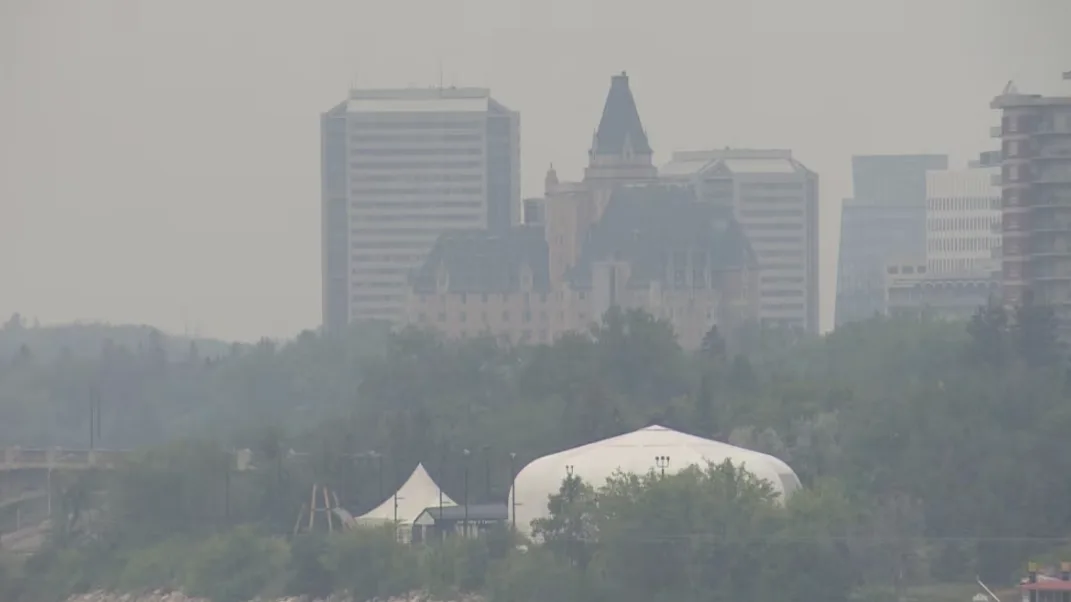
Affected by smoke this year? Plants and animals have been too, experts say
While experts advise people to stay inside and avoid wildfire smoke, or put on a respirator-type mask if outdoors, that's not possible for wildlife who are out in the elements all the time, and it could have consequences on their health too.
Saskatchewan has seen a record-breaking year for forest fires and smoke. Around 1.9 million hectares of land have burned as of Sept. 28, according to the Saskatchewan Public Safety Agency, breaking the previous record of 1.7 million hectares set in 2015.
Records for the number of hours of smoke observed have also been surpassed across the province, with Regina seeing over 250 hours, Saskatoon over 300 and La Ronge nearly 850 as of Sept. 24.
Iga Stasiak, Saskatchewan's wildlife health specialist, says animals face the same impacts from smoke as humans — including respiratory problems and fatigue — with birds particularly at risk.
"Birds have more efficient respiratory systems, so they can more easily absorb the toxins in the smoke and have a harder time clearing the particulates," she said.
DON'T MISS: We know the human costs of wildfires, but what about our wildlife?
Stasiak said smoke can impact wildlife behaviour as well because it obscures their sense of sight and smell.
"Being able to find forage, to be able to find mates depending on the time of year, reproduction, those types of activities might be affected," she said.
Stasiak said people reporting sightings of animals on naturalist apps and camera traps will help researchers see the impact smoke may have had on wildlife movement in the province.
She said it's important to monitor livestock and pets for trouble breathing or eye discharge because of smoke.
Pets should be kept inside if it's smoky, and owners should call a veterinarian if their animals experience symptoms.
Plants impacted by smoke too
Forrest Scharf, the province's fruit crop specialist, said dense smoke can have impacts on all types of plants.
Ozone, a gas formed by the interaction between solar rays and oxygen, can damage plant leaves. Scharf said smoke can also impact photosynthesis.
"There's less sunlight coming down and actually being absorbed by the plants," he said. "They aren't distributing other photosynthates to the plant; it doesn't grow as well."

Smoky skies have been a common sight in Saskatoon, which has seen over 300 smoke hours recorded this year, according to Environment and Climate Change Canada. (CBC News)
Raju Soolanayakanahally, a researcher with Agriculture and Agri-Food Canada in Saskatoon, said smoke dries out the atmosphere, making plants think they're experiencing drought.
As a result, they close their stomata — tiny pores on the surface of their leaves — which keep water stored, instead of releasing it into the atmosphere.
Soolanayakanahally said that can impact plant growth.
"Even a simple 30-minute exposure to smoke can reduce photosynthesis by almost 50 per cent," he said.
Smoke could have benefits for plants
Scharf said smoke also causes photosynthetic netting, which scatters radiation from the sun, preventing heat stress on plants and allowing them to undergo photosynthesis more efficiently.
SEE ALSO: Natural, human impacts on animals seen in 2,000-year-old condor poop
As a result, Scharf said the smoke also slowed moisture being evaporated from plants and surrounding soil.
"So under drought conditions, it might have been beneficial that we had a bit of smoke because … we're not getting as much water loss."
Soolanayakanahally said smoke can also spark germination in areas affected by forest fire — breathing new life into charred land.
He said studies have shown that smoke can also speed up the ripening of fruit, such as bananas.
Soolanayakanahally said data from the Canadian Grain Commission at the end of the year will show if crops have been impacted by smoke, similar to how canola crops were affected in Alberta in 2018.
Scharf said he's also keeping an eye on fruit crops.
"If they don't get the chance to send nutrients down to the roots, they might not overwinter as effectively," he said.
"Next spring I'll be looking at things and looking at plant health this fall as well and just trying to gauge how much of an impact smoke may have had on their ability to overwinter."
Thumbnail image courtesy of Gian Paolo Mendoza/CBC.
This article, written by Ethan Williams, was originally published for CBC News.